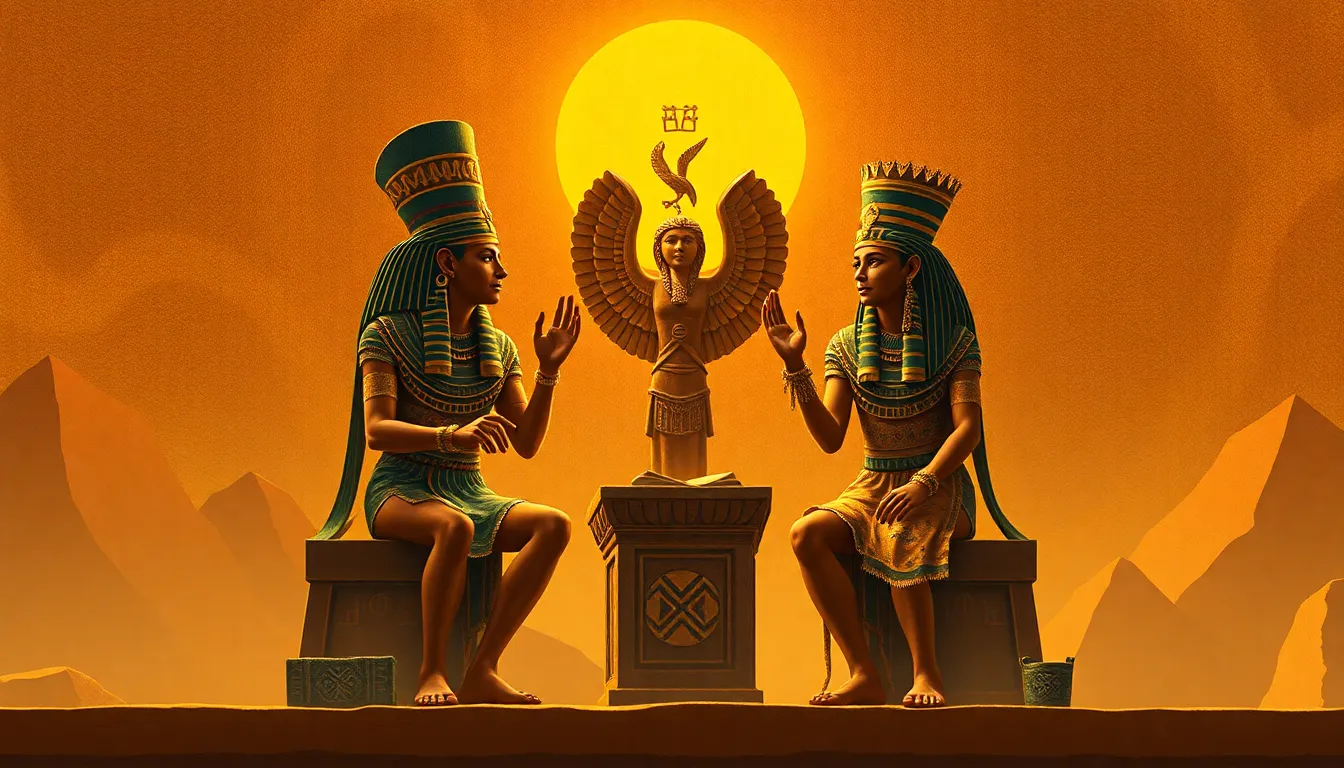The Divine Tribunal: How Ancient Egyptians Judged the Wicked
I. Introduction
The ancient Egyptians possessed a rich tapestry of beliefs surrounding the afterlife, central to their understanding of existence and morality. They believed that life on Earth was a prelude to a much more significant journey into the afterlife, where one’s actions and moral character would be rigorously assessed. The concept of divine judgment was not merely a religious doctrine but a vital aspect of social order, influencing conduct in everyday life.
This article aims to explore the ancient Egyptian beliefs about the Divine Tribunal, the concept of Ma’at, the journey to the Duat, and the intricate processes involved in judging the wicked. We will delve into the symbolism and mythology that underpin these beliefs and their lasting impact on the moral framework of Egyptian society.
II. The Concept of Ma’at
Ma’at is a central theme in ancient Egyptian culture, representing truth, balance, order, and justice. It was not just a concept but a goddess personified, revered for her role in maintaining cosmic harmony.
- Definition and Significance: Ma’at is often depicted as a woman with an ostrich feather on her head. She embodies the principles of order and balance necessary for both the universe and society.
- Role in Maintaining Cosmic Order: The ancient Egyptians believed that Ma’at governed the natural world and the behavior of individuals. The pharaoh, as the earthly embodiment of Ma’at, was responsible for upholding these principles.
- Influence on Moral Behavior: Adherence to Ma’at was expected in every aspect of life. Individuals were encouraged to live righteously, ensuring their actions aligned with the principles of truth and justice.
III. The Afterlife and the Journey to the Duat
The afterlife in ancient Egyptian belief was a complex realm where the soul would undergo a transformative journey. This journey through the Duat, or the underworld, was fraught with challenges and dangers.
- Description of Afterlife Beliefs: The Egyptians envisioned the afterlife as a continuation of life on Earth. It was a realm of eternal existence where the soul would dwell among the gods.
- The Journey through the Duat: The Duat was filled with obstacles, including demons and treacherous landscapes. The deceased had to navigate these dangers, often guided by spells from the Book of the Dead.
- Key Deities Involved: Several deities played crucial roles in the afterlife journey, including Anubis, the god of mummification, and Osiris, the judge of the dead.
IV. The Weighing of the Heart Ceremony
The Weighing of the Heart ceremony was a pivotal moment in the judgment of the deceased. This ritual determined the fate of the soul based on the moral integrity of one’s life.
- Detailed Explanation: In this ceremony, the heart of the deceased was weighed against the feather of Ma’at. A heart that was lighter than the feather indicated a life of virtue.
- Role of Anubis: Anubis, depicted as a jackal or a man with a jackal head, presided over the weighing. He ensured the process was fair and just.
- Consequences of the Heart’s Weight: If the heart was found heavier, it was devoured by Ammit, the soul-eater, resulting in the annihilation of the individual. Conversely, a lighter heart allowed entry into the Field of Reeds, a paradise for the righteous.
V. The Role of Osiris: Judge of the Dead
Osiris, one of the most significant deities in Egyptian mythology, played a crucial role as the judge of the dead. His mythology is rich and deeply intertwined with themes of death and resurrection.
- Significance in Judgment: Osiris was considered the ruler of the afterlife and the ultimate judge. His decisions were final, and he symbolized the hope of resurrection for the deceased.
- Mythology Surrounding Osiris: The story of Osiris involves his murder by his brother Set and subsequent resurrection by his wife, Isis. This narrative underscores the themes of death, rebirth, and moral justice.
- Symbol of Hope: For the righteous, Osiris represented the possibility of eternal life and a favorable judgment, encouraging individuals to adhere to the principles of Ma’at.
VI. The Punishment of the Wicked
In the afterlife, the fate of the wicked was dire. The ancient Egyptians believed that those who acted immorally would face severe repercussions.
- Description of the Fate of the Wicked: Those judged to be wicked were condemned to a bleak afterlife, often characterized by suffering and despair.
- Forms of Punishment: Egyptian texts describe various punishments, including eternal torment in the Duat or annihilation, where the soul would cease to exist.
- Annihilation vs. Eternal Torment: Annihilation was seen as a fate worse than any physical punishment, as it meant complete obliteration of the soul’s existence.
VII. Ethical Implications of Judgment in Ancient Egypt
The belief in divine judgment had profound ethical implications for ancient Egyptian society, affecting their laws and interpersonal relationships.
- Societal Impacts: The concept of divine judgment reinforced social order and ethical behavior. The fear of judgment encouraged individuals to act righteously.
- Connection Between Earthly Behavior and Afterlife Consequences: Egyptians believed that their actions in life directly influenced their fate in the afterlife, promoting a moral lifestyle.
- Reflection on Justice and Morality: The legal system in ancient Egypt was heavily influenced by the principles of Ma’at, emphasizing fairness and justice based on moral conduct.
VIII. Conclusion
In summary, the Divine Tribunal played a crucial role in shaping the moral and ethical landscape of ancient Egyptian civilization. The beliefs surrounding Ma’at, the afterlife, and the judgment process were not just religious tenets but foundational principles that guided daily life.
These ancient concepts continue to resonate in modern interpretations of justice, highlighting the enduring legacy of Egyptian morality. The emphasis on truth, balance, and ethical behavior remains relevant, reminding us of the importance of integrity in our own lives.
Ultimately, the moral framework established by ancient Egyptians through their beliefs in judgment and the afterlife serves as a timeless reflection on justice and human behavior.




